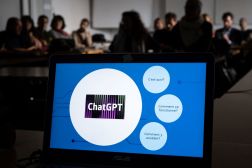North Dakota schools to benefit from statewide 100 GB broadband upgrade

By the first day of the 2019-20 school year, every K-12 student in North Dakota will have a 1-gigabit internet connection in their classroom, North Dakota Gov. Doug Burgum, State Superintendent Kirsten Baesler, CIO Shawn Riley and other state officials announced last month.
A cost-neutral 100-gigabit upgrade from Dakota Carrier Network (DCN), a group of telecom providers contracted by the state, will supply a minimum connection of 1 gigabit per second to every school district in the state, as well as local governments and institutions of higher education, by summer 2019. The upgrade will represent a 150-200 percent increase in current core network capacities and a twofold to tenfold increase in capacity for K-12 schools, according to a statement.
“North Dakota already ranks high nationally in terms of network connectivity for the K-12 community, and these significant yet cost-neutral upgrades will ensure our schools have the bandwidth and speed they need to prepare students for a 21st century economy impacted by rapid technological change,” Burgum said.
The upgrade will provide the infrastructure necessary to take North Dakota’s personalized and virtual learning initiatives to the next level, Baesler said, especially in rural areas.
The state has 178 school districts, the smallest of which has just eight students, Baesler said. High-speed internet represents a major leap forward in equalizing the educational opportunities for those students.
“With this new increase of bandwidth to those schools,” Baesler told EdScoop, “we’re in the process of developing courses and coursework that would not only teach the history and culture to the majority of our students through a virtual learning environment, but also the languages that are so quickly disappearing of Lakota and Dakota and Mandan. We’ll be able to have one linguist that will be able to reach all of our Native American students irrelevant of which reservation they happen to be living on.”
Baesler is also confident that the network upgrade will assist teachers and districts in making the most out of their one-to-one device programs, she said.
North Dakota has begun substituting the term “teacher” for “facilitator” in classrooms that are able to maximize virtual learning, she said, because teachers no longer have to stand and lecture course material for a 15-minute period or a 90-minute block. Students receive individualized material on their devices, and “facilitators” can devote classroom time to ensuring each student is understanding his or her material.
“A robust internet is especially useful for personalized learning,” Baesler said. “Students are using platforms that provide customized information to individual students. All of this needs a lot of internet horsepower. This contract, and the Dakota Carrier Network’s planned upgrades of our internet network, will give our teachers more instructional options, strengthen learning in our classrooms, and make innovative education projects possible.”




